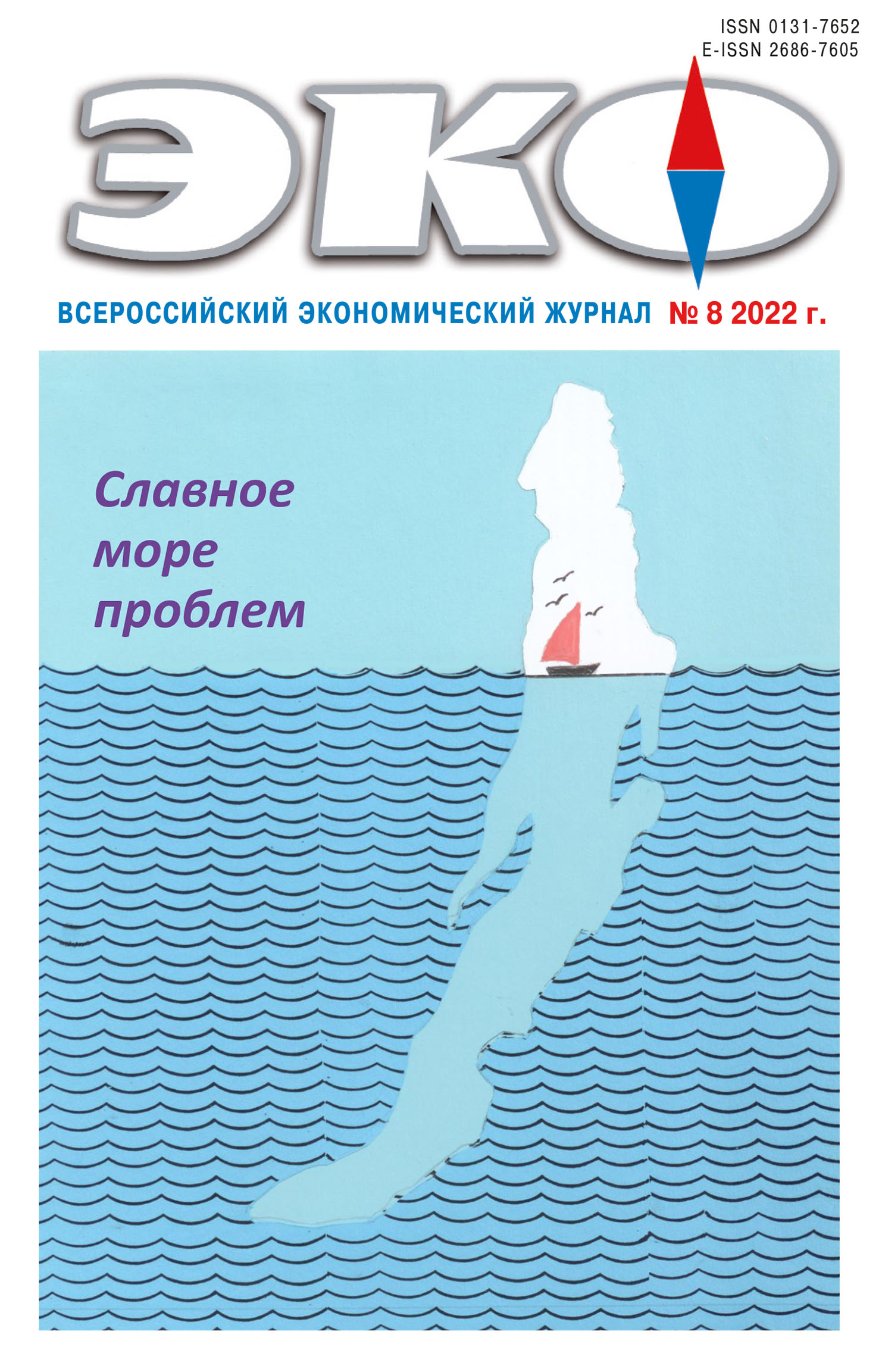ECOLOGY AND ECONOMY
Published 2022-07-26
Keywords
- organic agriculture; governmental support; rural economic development; farming
How to Cite
1.
Kravchenko Н, Samusenko С, Zimnyakova Т, Drobyshev И. Will Organic Farming Develop in Russia: The View of Industry Participants. ECO [Internet]. 2022 Jul. 26 [cited 2026 Jan. 20];52(8):89-105. Available from: https://ecotrends.ru/index.php/eco/article/view/4490
Abstract
The paper presents the results of an empirical study of the state of organic agriculture in Russia, based on qualitative in-depth interviews with representatives of the industry – farmers, producers of organic plant protection products, employees of scientific and educational organizations. The historical prerequisites for the emergence of the industry are analyzed, the incentives are systematized, as well as barriers and constraints to the development of production of organic products. It is shown that the industry participants have a high market potential, as well as the potential to develop intra- and inter-branch cooperative links, including links with scientific organizations. The barriers to the development of the industry are classified into producer barriers, consumer barriers, and institutional constraints. The opinions of respondents on the state and prospects of the industry are given, recommendations on possible directions of state support for the sector of organic agriculture in Russia are given.References
- Dumortier, J., Evans, K.S., Grebitus, C., & Martin, P.A. (2017). The Influence of Trust and Attitudes on the Purchase Frequency of Organic Produce. Journal of International Food & Agribusiness Marketing.Vol. 29. No.1. Pp. 46–69. http://dx.doi.org/10.1080/08974438.2016.1266565.
- Gonzalez, J.C., Forero J. (2022). Harvested and ready to export, bananas bound for Russia have nowhere to go. The Wall Street Journal. March, 25 Available at: https://www.wsj.com/articles/harvested-and-ready-to-export-bananas-bound-for-russia-have-nowhere-to-go-11648213381?mod=Searchresults_pos1&page=1.
- Meemken, E., Qaim, M. (2018). Organic agriculture, food security, and the environment. Annual Review of Resource Economics. Vol. 10. No.1. Pp. 39–63.
- Mohamad, S.S., Rusdi, S.D., Hashim N. H. (2014). Organic food consumption among urban consumers: Preliminary results. Procedia-Social and Behavioral Sciences. Vol.130. Pp. 509–514. https://doi.org/10.1016/j.sbspro.2014.04.059.
- Organic agriculture in the countries of the Eurasian Economic Union: current state and prospects (2020). The scientific review. Eurasian Center for Food Security, Moscow. 104 p. (In Russ)
- Padel, S., Foster, C. (2005). Exploring the gap between attitudes and behaviour. British Food Journal. Vol. 107. No.8. Pp. 606–625.
- PAN international List of highly hazardous pesticides (2016). Pesticide Action Network International. Germany. 35 p. http://www.pan-germany.org/download/PAN_HHP_List_161212_F.pdf
- Reganold, J., Wachter, J. (2016). Organic agriculture in the twenty-first century. Nature plants. Vol. 2. No. 2. Pp. 1–8.
- Scialabba, N. (2002). Organic agriculture, environment and food security. N. Scialabba, C. Hattam (ed.). Food & Agriculture Org. No. 4.
- Sergievich, A.A., et al. (2020). Behavioral impacts of a mixture of six pesticides on rats. Science of The Total Environment. Т. 727. Pp. 138491.
- Seufert, V. Ramankutty N., Mayerhofer T. (2017). What is this thing called organic? – How organic farming is codified in regulations. Food Policy. Vol. 68. Pp. 10–20.
- Tilman, D. (1998). The greening of the green revolution. Nature. Vol. 396. No. 6708. Pp. 211–212.
- Willer, H., et al. (Ed.): (2021). The World of Organic Agriculture. Statistics and Emerging Trends 2021. Research Institute of Organic Agriculture FiBL and IFOAM-Organics International, Bonn.

